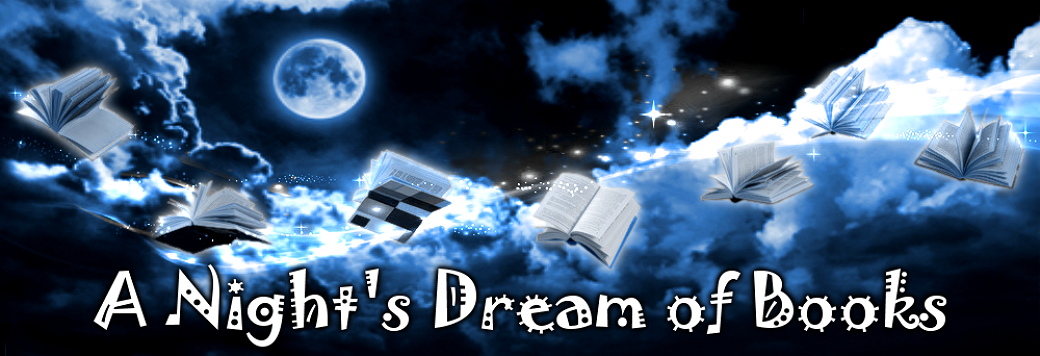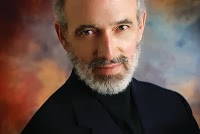Rapture
(Fallen #4)
Lauren Kate
Hardcover, 448 pages
Delacorte Press, June 12, 2012
Paranormal Romance, Urban Fantasy, Young Adult Fiction
Book Synopsis: The sky is dark with wings. . . . Like sand through an hourglass,
time is running out for Luce and Daniel. To stop Lucifer from erasing
the past, they must find the place where the angels fell to earth.
Dark
forces are after them, and Daniel doesn’t know if he can do this—live
only to lose Lucinda again and again. Yet together they face an epic battle
that will end with lifeless bodies . . . and angel dust. Great
sacrifices are made. Hearts are destroyed.
And suddenly Luce knows
what must happen. For she was meant to be with someone other than
Daniel. The curse they’ve borne has always and only been about her—and
the love she cast aside. The choice she makes now is the only one that
truly matters. In the fight for Luce, who will win?
The astonishing conclusion to the FALLEN series. Heaven can’t wait any longer.
My Review
It's been more than a year since I read the third book in this series, Passion, so I felt somewhat disoriented as I began Rapture,
which is the last in the series. I was tempted to go back and
reacquaint myself with the first three books, before going on with this
one. But then I just decided to plunge in.
Luce's
journey with Daniel in this book has a very worthy goal -- they must
stop Lucifer before he completely erases the past 7,000 years, by going
back to the original site of the angels' fall, in order to make sure
that his plan does not succeed.
I
was primed for the journey. I was ready to immerse myself once more in
this supernatural world, desperate to find Luce's curse lifted, which
would permit her and her angel boyfriend, Daniel, to love each other
freely.
The
beginning of the novel was exhilarating, as the two young lovers, along
with most of their friends from the previous books, set off on their
quest. They had to collect three ancient relics, bringing them together
at the right time and place, in order to thwart Lucifer. Daniel
dispatches two groups in search of two of these relics -- one to Vienna,
and one to Avignon, while he and Luce search for the third in Venice.
(I must inject a little digression here.....the text refers at first to
"Avalon", which is, of course, a mythical place; the name is later
corrected to "Avignon". I wonder if any other readers have noticed
this.)
Surprises
and twists abound in this book, and ancient enemies suddenly turn into
allies, while a new cast of characters is introduced -- the Scale, a
group of angels whose main task is to make sure that certain rules are
enforced, that a divine balance is maintained. This should mean that
they are part of "the good guys"; after all, they are on God's side. I
was shocked to discover that they really weren't that good. Their
actions were, instead, ruthless and cruel. They flew about dressed in
very black cloaks, which could be used to constrict a captive's body.
This book moves very swiftly -- the
writing flows inexorably; the pace is relentless. The chapters dealing
with Daniel and Luce's search are beautiful in scope, as well as touchingly sweet without being too much so.
There's
plenty of action in this novel, as well, as the group of angels -- and
demons -- on Daniel's side battle the Scale, who, incredibly enough,
seek to stop them from fulfilling their quest. In the process, Daniel,
Luce, and "the gang" encounter a new character, Dee, who bears an
uncanny resemblance to Miss Sophia, a villain from Fallen, the first book in the series.
I really liked Dee! She was
everything that Miss Sophia was not -- kind, sweet, loving, as well as
brilliant, and very resourceful. She immediately became the group's
guide, leading them to the place where all three relics were finally
united, and the answer to the location of the angels' ancient fall was
found.
Although
the settings were beautifully described, and the plot action-filled,
there were several things that, in the end, turned this book into a
pretty disappointing read.
One
of these was the characterizations, especially in regards to Luce.
Throughout the series, it's frequently repeated that she's the one most
important person in this whole cosmic drama. I would have expected that
such an important person would have taken a greater lead in this
novel's events. Instead, she basically flies around with Daniel and the
rest of their group, and keeps getting rescued. Her one great
accomplishment is retrieving one of the relics from an underwater
location. She is also kept in the dark much of the time, until Dee
tells her that it's time for her to 'wake up'. This is a veiled
reference to Luce's true nature, which the reader discovers toward the
end of the book. I think that the author was also giving her readers a
veiled message -- we must all wake up to our true nature. This points
to a decidedly New Age reference, as this is a frequently repeated axiom
in New Age philosophy.
This
brings me to another problem I see with this book, and indeed, it's
apparent from the very beginning of this series. The evil characters
are really not that evil, while some characters -- such as the Scale --
who should be good, really aren't.
I had already felt some rumblings of discontent with the second book in the series -- Torment.
Aside from the slowness of the plot, I also objected to finding an
angel and a demon having a romantic relationship.... Even if one is not
religious, it should be obvious, from an entirely logical standpoint,
that angels and demons are diametrically opposed, where ethics is
concerned.
The
very fact that Daniel and his angel friends are "fallen" should point
to another very obvious point: fallen angels are, in fact, demons.
These are two different names for the same entity, and they are used as
synonyms in Christian tradition. Yet, according to Kate, her fallen
angels are actually angels who have not yet committed themselves to
siding with either Heaven or Hell. Again, this sounds totally absurd.
There are indeed gray areas in human affairs, but we are supposedly
dealing with cosmic entities here. In the grand universal view, there
are no gray areas; evil is evil, and good is good.
In
fact, this series opens up a whole can of worms as to the nature of
good and evil, even when one considers the so-called "gray areas". When
is a certain action really and truly evil? I don't think that Kate
takes a firm stand on this point. She even goes as far as to justify an
intrinsically evil action that takes place toward the end of the book,
because of its supposedly beneficial consequences. This particular
incident was so repulsive to me, I nearly stopped reading the book right
then and there.
In
addition to the above two objections, I think that Kate simply takes
too many liberties with what is essentially a Christian worldview.
Perhaps I shouldn't judge her writing based on Christian standards; she
does not market herself as a Christian writer, after all. However, if
an author is going to use concepts and iconography belonging to a
certain spiritual tradition, then that writer should respect these
concepts by presenting them as they were originally conceived in that
tradition. What's happening here is that Kate has imbued this novel --
as well as the entire series -- with New Age elements, which are
superimposed on what initially appear to be Christian concepts, events,
and characters.
Of
course, there's nothing wrong with lacing a novel with elements of New
Age philosophy, if these are in line with the author's beliefs.
However, populating a novel with characters based on the Christian
tradition, and having them act as if they were from a pagan tradition
instead -- the ones in this novel resemble the supernatural beings from
Greek mythology, for instance -- simply does not work. Yet,
some of the scenes in this novel have Christian settings, such as Mount
Sinai, and the Church of the Holy Sepulcher in Jerusalem.
So
why didn't Kate simply use settings from Greek mythology? Why didn't
she classify her characters differently -- as nymphs, satyrs, ancient
gods and goddesses, as well as demi-gods and demi-goddesses? Why didn't
she mention places sacred to the Greek deities, such as Mount Olympus,
olive groves, and underworld caves, instead?
Adding
all this to the illogical reversal of good and evil, which really makes
the characters come across as very morally ambiguous, even though
they're angels and demons, created, for me, a highly uncomfortable
reading experience in several passages throughout the novel. Naturally,
this would affect the characterizations, which were thus not as
effective, in my opinion, as they could have been.
So,
in spite of the wonderful writing style and deft plotting, in spite of
my love for the characters -- especially Luce, Daniel, and Arriane -- I
have to honestly say that I did not enjoy this book as much as I was
expecting to.
One last thing that bothered me was
the rather disappointing ending, which came across as too predictable,
as well as entirely arbitrary. The novel just didn't have to end the
way it did; with all the glory of Heaven, and the sordidness of Hell,
having been so imaginatively displayed, surely the author could have
come up with something much more in keeping with the whole grandness of
the plot.
Besides,
Luce and Daniel are given the alternative of choosing Love, instead of
Heaven or Hell. It's absurd for Love to be considered a third
alternative! Heaven is the domain of Love, according to the Christian
tradition, because God is the Supreme Lover. The God portrayed in this
novel, however, doesn't seem to believe this. Again, this God does not
even resemble the one in the Christian tradition at all. Kate has
instead decided to present a deity who could have been lifted from any
of the tales of Greek mythology.
One
positive thing I can say about the series, however, is that it has
sparked in me a great interest in the Watchers and Nephilim, which has
stimulated a need to research such matters.
To
sum up, I would have to say that I am very disappointed in this novel,
and, in fact, it is making me re-evaluate the entire series, as well.
In spite of their classification as young adult fiction, I would instead
recommend these books to adults, due to their spiritually confusing
content.
This
novel would be perfect, I think, for readers who don't mind
inconsistencies such as the ones I have pointed out above, and are willing to simply go along with the plot, enjoying the story as written. For
me, however, the spiritual inconsistencies, as well as that one evil
event, made this novel a less than enjoyable reading experience.
MY RATING:































